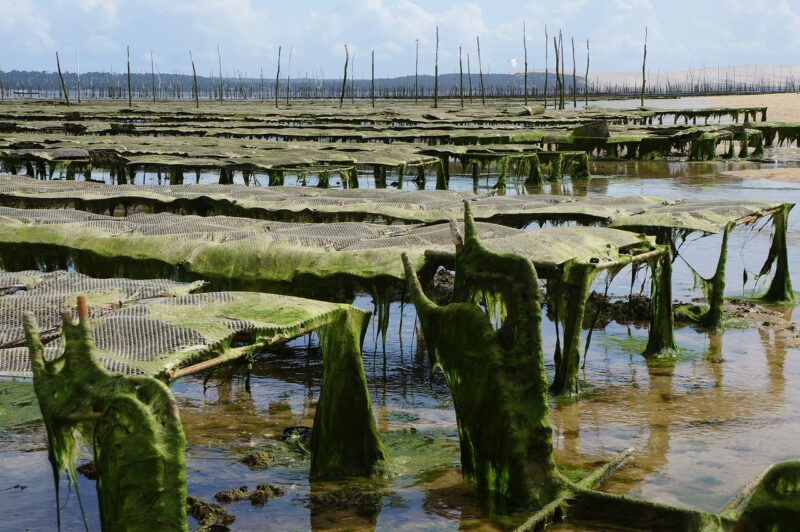The Role of Aquaculture in Fighting Overfishing and Preserving Oceans
November 11, 2024

Aquaculture, the farming of aquatic organisms including fish, mollusks, crustaceans, and aquatic plants, plays a pivotal role in addressing the pressing issue of overfishing and preserving our oceans. As global populations increase and the demand for seafood rises, aquaculture has emerged as a sustainable alternative that not only helps maintain fish populations in the wild but also provides a reliable source of protein for millions. In this article, we will explore how aquaculture contributes to combating overfishing and the innovative practices that make it a key player in ocean conservation.
1. Understanding Overfishing
Overfishing occurs when fish stocks are depleted faster than they can replenish. This can lead to significant declines in fish populations and disturb marine ecosystems, as well as causing harm to coastal communities that rely on fishing for their livelihoods. According to the Food and Agriculture Organization (FAO), almost one-third of global fish stocks are overfished, and many more are fished at their maximum sustainable levels.
By understanding the core issues surrounding overfishing, we can begin to appreciate the need for sustainable solutions like aquaculture that can help alleviate these pressures.
2. The Promise of Aquaculture
Aquaculture has been recognized as a crucial tool in ensuring food security and addressing overfishing. Here are several ways aquaculture makes a positive impact on our oceans:
- Reducing Pressure on Wild Fish Stocks: By producing seafood through controlled farming environments, aquaculture helps alleviate the demand on wild fish populations, allowing them to recover and flourish in their natural habitats.
- Enhancing Biodiversity: Aquaculture can support the conservation of endangered species through breeding programs and re-stocking initiatives, helping revitalize local ecosystems.
- Sustainable Practices: Modern aquaculture puts a strong emphasis on sustainability. Techniques such as integrated multi-trophic aquaculture (IMTA) create symbiotic relationships among different species, reducing waste and improving overall ecosystem health.
- Economic Stability: Aquaculture provides jobs and economic opportunities for coastal communities impacted by declining wild fish stocks, helping maintain livelihoods while ensuring sustainable seafood production.
As aquaculture continues to expand, it presents both challenges and opportunities to further support ocean conservation.
3. Innovations in Aquaculture Practices
The future of aquaculture lies in innovative practices that prioritize environmental responsibility and efficiency. Here are some noteworthy advancements making waves in this industry:
- Recirculating Aquaculture Systems (RAS): RAS technology allows fish farming operations to reduce water use and limit waste release into the surrounding environment, thus creating a more sustainable farming approach.
- Aquaponics: This method combines fish farming with plant cultivation, utilizing the waste produced by fish to nourish plants, resulting in a closed-loop system that maximizes resource efficiency.
- Selective Breeding: Advances in genetic research allow for the selective breeding of fish that grow faster, are more disease resistant, and require less feed, leading to more sustainable aquaculture operations over time.
- Use of Alternative Feeds: Many farms are now exploring using plant-based ingredients or by-products from other industries, reducing reliance on wild fish for feed and promoting a more circular economy in aquaculture.
These innovations not only help protect our oceans but also offer a glimpse into aquaculture’s potential to provide a sustainable food source for the future.
4. Challenges Facing Aquaculture
Despite its promise, the aquaculture industry faces several challenges that need addressing for it to realize its full potential:
- Environmental Impacts: Poorly managed aquaculture operations can lead to habitat destruction, pollution, and the spread of diseases among wild fish populations. Sustainable management practices are critical to mitigating these issues.
- Regulation and Certification: The need for strict regulations and certifications is paramount to ensure that aquaculture operations adhere to sustainable practices and contribute positively to marine ecosystems.
- Market Demand and Consumer Awareness: Encouraging responsible consumption and promoting farmed seafood can help shift consumer demand away from overfished species, supporting aquaculture and sustainable fisheries over the long term.
By facing these challenges head-on, the aquaculture industry can continue to grow as a sustainable solution to ocean conservation and food security.
5. Future Perspectives on Aquaculture and Ocean Conservation
As the global population continues to grow, the pressures on our oceans intensify. Aquaculture can play an essential role in securing access to seafood while preserving the health of marine ecosystems. It’s essential for consumers, producers, and policymakers alike to prioritize sustainable practices in the industry.
Future efforts should focus on:
- Supporting Research and Development: Funding initiatives that explore innovative aquaculture methods and practices will ensure continuous improvements that benefit both the industry and the environment.
- Enhancing Education and Awareness: Educating consumers about the benefits of sustainable seafood and the importance of aquaculture will encourage responsible consumption choices.
- Strengthening Global Collaboration: A coordinated effort between governments, NGOs, and industry stakeholders will help develop policies that protect marine resources and support sustainable aquaculture practices.
As we navigate the complexities of our modern world, aquaculture provides a viable means to fulfill our seafood needs without compromising the health of our oceans.
Conclusion
Aquaculture stands as a beacon of hope in the endeavor to fight overfishing and protect our oceans for future generations. By embracing sustainable practices, investing in innovation, and demanding responsibly sourced seafood, we can shift towards a resilient system that supports both human health and marine conservation. As consumers, our collective choices will ultimately determine the future of our oceans and the effectiveness of aquaculture in safeguarding them.
If you’re passionate about promoting sustainable seafood, consider integrating aquaculture in your dietary choices, and advocate for policies that prioritize the health of our oceans. Together, we can create a healthier planet and a sustainable future for seafood production.







